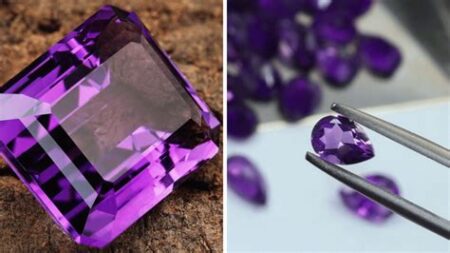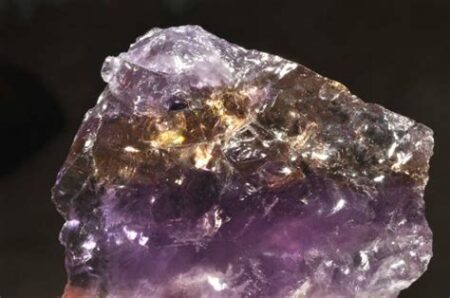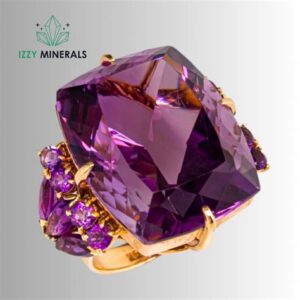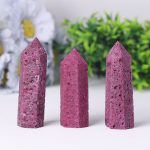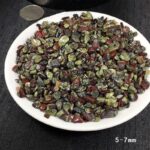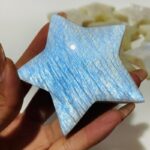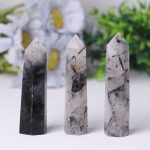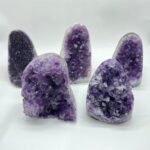Emerald, peridot, malachite, and jadeite—these captivating green stones have mesmerized humankind for centuries, adorning crowns, symbols of power, and beloved amulets. In this comprehensive guide, we embark on a journey to unveil the mesmerizing world of green gemstones, exploring their history, symbolism, properties, and applications.

Emerald: A Treasured Talisman of Royalty
Emeralds, the enchanting gemstones of ancient lore, have graced the crowns of emperors and adorned the hearts of queens. Egyptians believed emeralds to be the tears of the goddess Isis, while Incas revered them as a symbol of divine wisdom.
Today, emeralds continue to captivate with their unparalleled beauty and value. According to the Gemological Institute of America (GIA), emeralds are the most valuable green gemstones, with fine specimens fetching upwards of $150,000 per carat.
Origin and Formation
Emeralds are a type of beryl, a mineral composed primarily of beryllium, aluminum, and silicon. Their verdant hue is attributed to trace amounts of chromium and vanadium. Emeralds are formed in hydrothermal veins, where hot, mineral-rich water circulates through fissures in the Earth’s crust, depositing crystals over time.
Notable Emerald Deposits
Colombia is the world’s leading producer of emeralds, accounting for over 90% of the global supply. Other significant deposits include Zambia, Brazil, Afghanistan, and Madagascar.
Peridot: The Olivine Gem of Antiquity
Peridot, a stunning green stone often mistaken for emerald, has been prized since ancient times. In the Middle Ages, it was believed to protect against evil spirits and ensure a safe journey.
Origin and Formation
Peridot is a form of olivine, a mineral composed of magnesium and iron. Its vibrant green color results from the presence of iron atoms in the crystal structure. Peridot is formed in igneous rocks, such as basalt, and is often found in volcanic regions.
Notable Peridot Deposits
The United States (Arizona and New Mexico), Myanmar (Burma), and Pakistan are renowned for their peridot deposits.
Malachite: The Enigmatic Stone of Healing
Malachite, with its vibrant banded green patterns, has been revered for its healing properties throughout history. Ancient Egyptians used malachite to alleviate pain and inflammation, while Ayurvedic medicine practitioners have employed it to treat liver and digestive ailments.
Origin and Formation
Malachite is a copper carbonate mineral that forms in oxidized copper deposits. Its characteristic banded patterns reflect the alternate deposition of malachite and its lighter-colored counterpart, azurite.
Notable Malachite Deposits
Russia, the Democratic Republic of Congo, Zambia, and the United States (Arizona) are the major producers of malachite.
Jadeite: The Stone of Heaven
Jadeite, a captivating green stone often associated with China, has been revered throughout Asian cultures for centuries. The Chinese believed jadeite to possess mystical powers, including the ability to promote harmony, longevity, and good fortune.
Origin and Formation
Jadeite is a type of pyroxene, a mineral composed of calcium, magnesium, iron, and silicon. Its green color is caused by trace amounts of chromium or titanium. Jadeite is formed in metamorphic rocks, such as marble, and is often found in riverbeds or alluvial deposits.
Notable Jadeite Deposits
Myanmar (Burma) is the primary producer of jadeite, followed by Guatemala, Russia, and Japan.
Properties and Applications of Green Gems
Green gemstones possess a range of physical and metaphysical properties that make them highly valued for jewelry, decorative purposes, and metaphysical applications.
Physical Properties
- Hardness: Emeralds, peridots, and jadeites are relatively hard gemstones, with a Mohs hardness of 7.5-8, making them suitable for everyday wear.
- Specific Gravity: The specific gravity of green gemstones varies, with emeralds being the heaviest (2.67-2.78), followed by peridots (3.3-3.5), malachite (3.9-4.0), and jadeite (3.3-3.5).
- Refractive Index: The refractive index determines how much light is bent when passing through a gemstone. Emeralds have a refractive index of 1.57-1.58, peridots have a refractive index of 1.65-1.69, malachite has a refractive index of 1.66-1.87, and jadeite has a refractive index of 1.66-1.68.
Metaphysical Properties
Green gemstones are associated with a range of metaphysical properties, including:
- Emerald: Prosperity, abundance, love, and new beginnings
- Peridot: Harmony, balance, wealth, and good luck
- Malachite: Protection, grounding, detoxification, and transformation
- Jadeite: Good fortune, prosperity, longevity, and health
Applications
Green gemstones are used in a wide range of applications, including:
- Jewelry: Green gemstones are popular components of jewelry, ranging from necklaces and earrings to rings and bracelets.
- Decorative Objects: Green gemstones are used to create decorative objects, such as vases, sculptures, and inlay work.
- Metaphysical Purposes: Green gemstones are employed in meditation, crystal healing, and other spiritual practices.
Innovative Applications: “Chromography”
The unique green hues of these gemstones have inspired the development of a new and innovative application: “chromography.” Chromography utilizes green gemstones to create dynamic and aesthetically pleasing light displays by harnessing their ability to absorb and transmit light of specific wavelengths. This technology has potential applications in home decor, architectural design, and even therapeutic lighting.
Benefits of Owning Green Stones Gems
Owning green gemstones offers numerous benefits, including:
- Investment Potential: Green gemstones, particularly emeralds and jadeites, can be a valuable investment due to their increasing rarity and demand.
- Emotional Support: Green gemstones are believed to provide emotional support, balance, and grounding.
- Aesthetic Appeal: The verdant hues of green gemstones add an undeniable element of beauty and sophistication to any outfit or decor.
Green Stones Gems: A Symbol of Nature’s Bounty
Green gemstones, with their mesmerizing hues and captivating properties, represent the boundless wonders and beauty of the natural world. They evoke a sense of serenity, grounding, and connection to nature’s abundant blessings.
Whether you admire them for their beauty, value their metaphysical properties, or appreciate their innovative applications, green gemstones offer a myriad of ways to enhance your life with their verdant allure.
Comprehensive Tables
Table 1: Physical Properties of Green Gems
| Gem | Hardness (Mohs) | Specific Gravity | Refractive Index |
|---|---|---|---|
| Emerald | 7.5-8 | 2.67-2.78 | 1.57-1.58 |
| Peridot | 7.5-8 | 3.3-3.5 | 1.65-1.69 |
| Malachite | 3.5-4.0 | 3.9-4.0 | 1.66-1.87 |
| Jadeite | 7.0-7.5 | 3.3-3.5 | 1.66-1.68 |
Table 2: Metaphysical Properties of Green Gems
| Gem | Associated Properties |
|---|---|
| Emerald | Prosperity, abundance, love, new beginnings |
| Peridot | Harmony, balance, wealth, good luck |
| Malachite | Protection, grounding, detoxification, transformation |
| Jadeite | Good fortune, prosperity, longevity, health |
Table 3: Applications of Green Gems
| Application | Uses |
|---|---|
| Jewelry | Necklaces, earrings, rings, bracelets |
| Decorative Objects | Vases, sculptures, inlay work |
| Metaphysical Purposes | Meditation, crystal healing, spiritual practices |
| Chromography | Light displays, home decor, architectural design |
Table 4: Notable Green Gem Deposits
| Gem | Major Deposits |
|---|---|
| Emerald | Colombia, Zambia, Brazil, Afghanistan, Madagascar |
| Peridot | United States (Arizona and New Mexico), Myanmar (Burma), Pakistan |
| Malachite | Russia, Democratic Republic of Congo, Zambia, United States (Arizona) |
| Jadeite | Myanmar (Burma), Guatemala, Russia, Japan |

